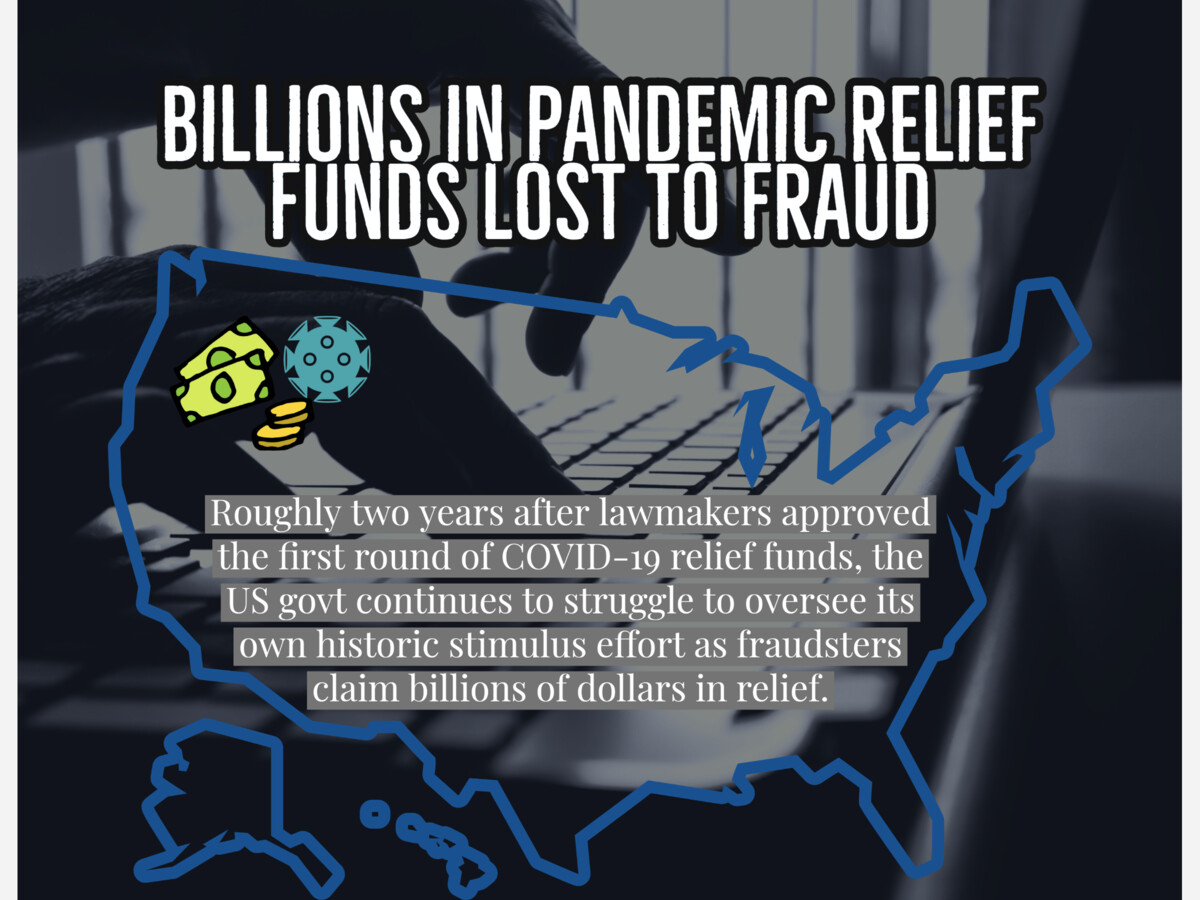Image

Tuesday, June 28, 2022, the New Jersey District Attorney's Office reported on a Camden County, NJ woman who admitted to fraudulently obtaining 30 loans meant to help small businesses recover from the pandemic.
Rhonda Thomas of Sicklerville, NJ filed fraudulent loans that dispersed over $3 million in federal COVID-19 emergency relief funds to Thomas and her conspirators.
The same day, the NJ District Attorney released information on a former Warren County businessman who admitted to fraudulently obtaining $1.8 million in COVID-19 loans meant for small businesses.
Rocco A. Malanga, formerly of Hackettstown, NJ, pleaded guilty to one count of bank fraud and one count of money laundering for submitting at least three Paycheck Protection Program loan applications on behalf of three different business entities in which Malanga fabricated the number of employees employed as well as their average monthly payroll.
The charges above have become a common occurrence in the state of New Jersey and across the country fraud is claiming billions from COVID-19 relief packages.
The Coronavirus Aid, Relief, and Economic Security (CARES) act is a federal law designed to provide emergency federal assistance to Americans and businesses suffering economic hardship as a result of the COVID-19 pandemic.
Since the passing of this $350 billion funding package, a part of the American Rescue Plan, instances of massive fraud (upwards of $1 million) have skyrocketed across the country.
In Stamford, CT, a 46-year-old resident pled guilty after putting $4 million in CARES aid towards the purchases of a new Porsche, Mercedes, and BMW.
In Somerset, NJ this year, a 51-year-old woman allegedly invented employees, inflated wages, and fabricated entire tax filings to obtain approximately $1 million in CARES loans.
In St. Petersburg, FL, a 63-year-old man was sentenced to prison for obtaining an $800,000 CARES loan on behalf of a business that did not exist.
In April, the Justice Department announced it had charged 21 people across the US for pandemic-related health care fraud that resulted in nearly $150 million in federal losses.
Totaling nearly $6 trillion, the U.S. Government’s American Rescue Plan funds are faced with an exceedingly common challenge: online fraud.
Policymakers and economists generally agree that investments like the CARES act helped rescue the US economy from the worst crisis since the Great Depression. However, these investments have proven difficult to track, and as money begins to disappear more cases of pandemic-related fraud are uncovered.
There are also questions about whether these government funds benefitted those who needed it most as the aid packages remain a nationwide target for criminals.
Vice News recently spoke to a criminal organization that appears to be taking advantage of COVID-19-related rescue funds.
While the organization and individuals interviewed would not detail their criminal practices, it appears as though criminals have been able to make large sums of money by fraudulently filing COVID relief applications online with stolen personal information swiped off the Dark Web.
In total, it is estimated that hundreds of billions of federal dollars have been lost to pandemic-related fraud. And despite recent efforts to combat such fraud, it may be too late for the Justice Department to prosecute the perpetrators of some of the costliest forms of this crime.
The failure of the Justice Department to prevent massive pandemic-related fraud has overshadowed both the Trump and Biden administrations. While the most critical missteps took place during the Trump administration, the Biden administration has failed to quickly recognize the problem it inherited and take actions to curb these cases of fraud.
The cases above are a result of Attorney General Barr and his senior advisors focusing on fraud in the Paycheck Protection Program. However, other forms of pandemic-related fraud have been largely ignored – particularly pandemic-related consumer fraud and unemployment fraud.
Additionally, AG Barr has chosen to “crackdown” on widespread “hoarding” and “price-gouging” of personal protective equipment rather than focus on the billions of federal dollars stolen by fraudsters through the CARES act.
To be clear, the Justice Department is more than adequately equipped to fight identity thieves at home and abroad attempting to take advantage of COVID relief funds.
The department has the ability to identify common forensic features across fraudulent applications (like shared IP addresses or banking routing information) to trace and identify networks of fraudulent applicants at home and abroad.
At a hearing in June of 2020, Senators Sheldon Whitehouse (D-RI) and Jack Reed (D-RI) urged the Trump administration to address rapidly growing fraud in the unemployment system by using these aforementioned tools at their disposal. However, the warning was largely ignored – with disastrous results.
NBC News reported in April of this year that an estimated $400 billion – nearly half the COVID unemployment relief program – was sent to fraudulent applicants.
It will likely take years after the pandemic is in the rearview to calculate exactly how much of the pandemic-related funds were collected fraudulently by scammers.
All the while, many states struggle to find room in the budget for necessary projects like increasing the salary of public-school teachers or improving road infrastructure and transportation costs/availability.
Follow Morristown Minute on Facebook, Instagram, and Twitter for more state and local updates.